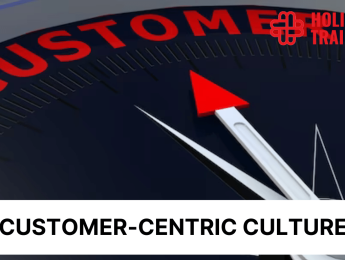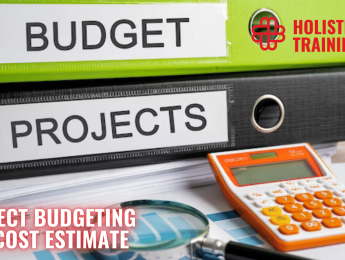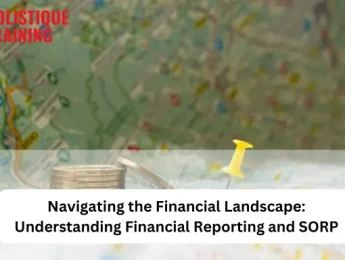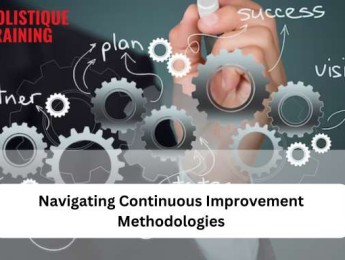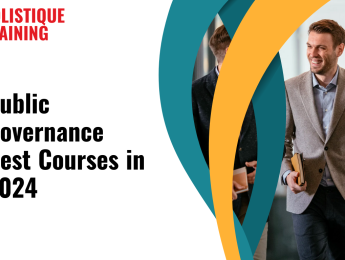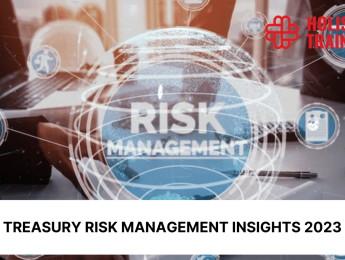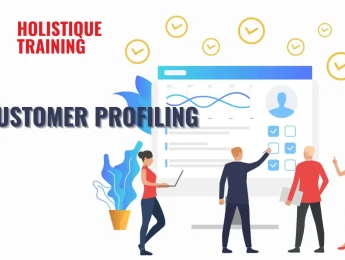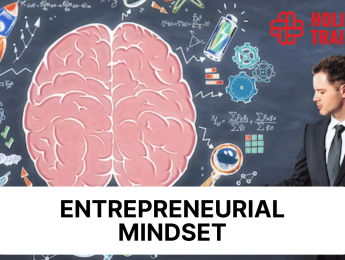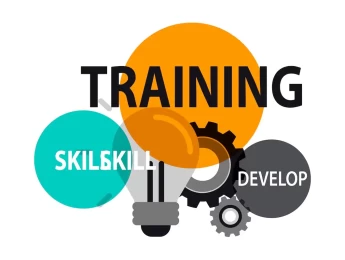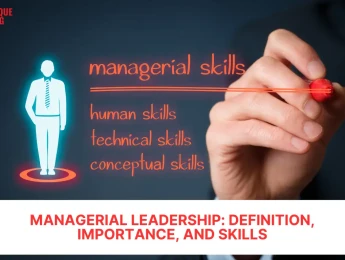- Table of Contents
- Understanding Media Relations
- Media Relations & Public Relations (PR): What’s the Difference?
- The Role of a Media Relations Professional
- Essential Technical, Soft, and Hard Skills
- How to Make Your PR Skills Stand Out
- Pursuing a Career As a Media Relations Professional: Is It Worth It?
- Conclusion
Media relations, a critical subset of the broader field of Public Relations (PR), is a dynamic and multifaceted domain that serves as the bridge between organisations and the media. In an era where information travels at lightning speed and perception is often reality, media relations professionals play an integral role in shaping and maintaining a brand's image. To excel in this field, one must possess a unique blend of technical, soft, and hard skills that enable effective communication, relationship-building, and crisis management. In this comprehensive blog post, we'll delve deeply into the essence of media relations, the multifaceted role of a media relations professional, and the essential skills that set apart the best in the industry.
Understanding Media Relations
Media relations is the strategic practice of managing communication between an organisation and the media. The media, encompassing traditional outlets like newspapers, magazines, television, and radio, as well as modern digital platforms such as blogs, social media, podcasts, and online news portals, acts as a conduit for disseminating information to a broader audience. Successful media relations involve crafting compelling narratives, generating positive coverage, addressing negative perceptions, and fostering strong relationships with journalists, bloggers, vloggers, and other media personnel.
Media Relations & Public Relations (PR): What’s the Difference?
While media relations and public relations (PR) are often used interchangeably, they represent distinct facets within the broader field of communication. Media relations, as the name suggests, is specifically concerned with managing an organisation's interactions with the media. It focuses on crafting narratives that resonate with journalists, securing positive coverage, and navigating the intricate landscape of news outlets, blogs, and social media. In essence, media relations is a specialised subset of PR, honing in on the strategic communication between an organisation and the media to shape its public image.
On the other hand, public relations encompasses a more comprehensive approach to managing an organisation's reputation. Beyond media interactions, PR involves engaging with a diverse range of stakeholders, including customers, employees, investors, and the general public. PR professionals work on building and maintaining positive relationships with these groups, orchestrating communication campaigns, and implementing strategies that align with the overall goals and values of the organisation. While media relations plays a crucial role in PR, the latter is a broader discipline that encompasses a spectrum of communication activities beyond interactions with the media. Understanding this distinction is key for professionals navigating the intricate world of strategic communication.
Table 1: Key differences between Media Relations and PR
Aspect | Media Relations | PR |
Scope | Focus on media interactions and coverage | Broader reputation management |
Audience | Primarily journalists and media outlets | Diverse stakeholders and public |
Objective | Shape organisation's image through media | Manage overall public perception |
Communication Focus | Interactions with media personnel | Engage stakeholders across channels |
Emphasis | Positive media coverage and relationship | Holistic brand reputation strategy |
The Role of a Media Relations Professional
Media relations professionals serve as the architects of an organisation's public image, undertaking a multifaceted role that extends far beyond the confines of traditional public relations. Their responsibilities are pivotal in steering how the public perceives a brand, and they play a crucial part in establishing and maintaining a positive and authentic connection between organisations and the media. Let's delve into the intricacies of their role:
Cultivating Positive Relationships
At the heart of a media relations professional's role is the cultivation of positive and enduring relationships with various media outlets. By establishing rapport with journalists, editors, and other media personnel, these professionals create a foundation built on trust and mutual understanding. Such relationships are instrumental in garnering positive coverage and can be a lifeline during times of crisis.
Ensuring Accurate Representation
Media relations professionals act as gatekeepers, ensuring that the information disseminated to the media accurately represents the organisation's values, goals, and activities. This involves meticulous attention to detail in crafting press releases, statements, and other communications to provide a clear and authentic portrayal of the brand.
Managing Crisis Situations
In the unpredictable landscape of media relations, crises can emerge at any moment. A skilled media relations professional is adept at crisis management, swiftly responding to negative situations with grace and effectiveness. This involves providing accurate information promptly, controlling the narrative, and mitigating potential damage to the organisation's reputation.
Liaison Between Messages and Stories
Acting as liaisons, media relations professionals bridge the gap between an organisation's key messages and the stories that journalists seek to tell. This intricate dance involves understanding the nuances of journalistic storytelling and aligning these narratives with the broader goals and messaging of the organisation.
Crafting Meticulously Crafted Press Releases
A significant part of their role revolves around drafting press releases that are not only informative but also captivating. These professionals must possess a keen understanding of the media landscape to ensure that their releases stand out amidst the myriad of information that journalists encounter daily.
Organising Well-Choreographed Media Events
Beyond written communication, media relations professionals excel in organising well-choreographed media events. Whether it's a product launch, a press conference, or an exclusive interview opportunity, these events are meticulously planned to generate maximum media coverage and positive exposure.
Comprehensive Media Training
Ensuring that spokespersons are well-prepared and aligned with the brand's messaging is another critical aspect of their role. Media relations professionals conduct comprehensive media training sessions to equip key individuals within the organisation with the skills to communicate effectively and consistently in various media situations.
Meticulously Monitoring Media Coverage
To gauge public sentiment and the effectiveness of their strategies, media relations professionals keep a vigilant eye on media coverage. Through the use of advanced media monitoring tools, they track mentions, analyse sentiment, and gather insights that inform future communication strategies.
In essence, the role of a media relations professional is a delicate balancing act that requires a combination of strategic thinking, excellent communication skills, and the ability to navigate the unpredictable terrain of media landscapes. By actively shaping public perceptions, building and maintaining positive relationships, and effectively managing crises, these professionals contribute significantly to the overall success and reputation of the organisations they represent.
Essential Technical, Soft, and Hard Skills
Technical Skills:
According to a recent PR analytics report, as mentioned in an article by Britopian, a significant 75% of PR professionals rate their technical skills as falling within the spectrum of "good" to "excellent." Nevertheless, there is a clear call for these skills to transcend mere excellence and reach the realm of true excellence. Here are some of the technical skills you should be excelling at as a media relations professional:
Writing Proficiency
Exceptional writing skills are the cornerstone of effective media relations. It's not just about conveying information; it's about crafting compelling narratives. Media relations professionals must master the art of drafting press releases that are not only informative but also captivate the audience. Additionally, the ability to create persuasive pitches and well-researched articles is indispensable for successful communication.
Digital Savviness
In the digital age, media relations professionals must be well-versed in various digital platforms, content management systems, and online analytics tools. Proficiency in leveraging these tools enhances a professional's ability to reach a wider and more diverse audience. Understanding the nuances of each platform allows for tailoring messages effectively, catering to the specific dynamics of different digital environments.
Research Abilities
Adept research skills are fundamental for identifying and analysing trends, pinpointing journalists interested in specific stories, and ensuring that pitches align with the focus and tone of different publications. In-depth research also enables media relations professionals to stay ahead of industry developments and adapt their strategies accordingly.
Soft Skills:
Communication
Effective communication is the linchpin of media relations. Professionals must be articulate and versatile in their communication, capable of crafting messages that resonate with a diverse range of audiences. Whether communicating with seasoned journalists or the general public, the ability to convey information clearly and compellingly is paramount.
Relationship Building
Building strong, enduring relationships with journalists, editors, and other media personnel is vital for success. Trust and rapport facilitate more receptive coverage and a higher likelihood of media cooperation during times of crisis. Professionals need to establish themselves as reliable sources of accurate and timely information, fostering relationships based on mutual respect.
Adaptability
The media landscape is in a constant state of evolution, driven by technological advancements and shifts in audience preferences. Media relations professionals must be quick to adapt to new technologies, emerging trends, and evolving platforms. This adaptability not only ensures professional relevance but also allows for effective communication in a rapidly changing media environment.
Empathy
Understanding the needs, perspectives, and priorities of journalists and media outlets is crucial. By empathising with their challenges and goals, media relations professionals can tailor their pitches and stories in ways that resonate. This human-centric approach enhances the chances of positive coverage and fosters long-term relationships.
Hard Skills:
Crisis Management
The ability to manage negative situations gracefully and effectively is a hallmark of a skilled media relations professional. Crisis management involves not only reacting promptly to adverse events but also proactively establishing protocols and strategies to mitigate potential damage to the organisation's reputation.
Media Monitoring
Keeping a vigilant eye on media coverage, both positive and negative, is essential for informed decision-making. Media monitoring involves using advanced tools to track mentions, analyse sentiment, and gather insights into public perception. This hard skill enables professionals to adjust their strategies in real-time, based on the evolving media landscape.
Pitching
Crafting attention-grabbing story angles and pitching them effectively to journalists require a mix of creativity, persuasion, and strategic thinking. Professionals must identify the most newsworthy aspects of their organisation's activities and package them in ways that journalists find compelling. This hard skill is integral to securing media coverage and maintaining a positive public image.
In summary, the triad of technical, soft, and hard skills forms the foundation of excellence in media relations. The best professionals in the industry not only master the technical intricacies of writing, digital platforms, and research but also embody strong communication, relationship-building, adaptability, and crisis management skills. By continuously honing this comprehensive skill set, media relations professionals navigate the complexities of their field with confidence and contribute significantly to the success of the organisations they represent.
How to Make Your PR Skills Stand Out
In the competitive world of media relations, standing out requires more than just possessing the right skills; it's about how you leverage them to create a lasting impact:
Continuous Learning
Embracing a culture of continuous learning is a hallmark of top-tier media relations professionals. Staying abreast of industry trends, emerging technologies, and evolving communication best practices is crucial. Enrolling in workshops, webinars, and online courses not only enhances your skill set but also positions you as a proactive and forward-thinking professional.
Build a Strong Portfolio
Your portfolio serves as a tangible showcase of your capabilities. Highlight your writing prowess, successful campaigns, and crisis management expertise. A well-constructed portfolio should reflect the diversity of your skills, demonstrating your ability to handle various media relations challenges effectively. Consider including case studies, press releases, and media coverage samples to provide a comprehensive overview of your achievements.
Networking
Cultivating robust relationships within the industry is not just an option; it's a necessity. Actively network with journalists, editors, and fellow media relations professionals. Attend industry events, engage in online forums, and participate in relevant discussions. Networking not only keeps you informed about the latest industry developments but also opens doors to potential collaborations, referrals, and career opportunities.
Adapt to the Digital Landscape
In today's digital age, proficiency in social media management, content creation, and data analytics adds significant value to your skill set. Organisations increasingly seek professionals who can navigate the digital realm with finesse. Stay updated on the latest trends in social media platforms, content marketing strategies, and digital analytics tools to remain relevant and effective in the evolving media landscape.
Demonstrate Tangible Results
Metrics and tangible results speak volumes. Highlight specific instances where your skills led to increased positive coverage, effective crisis resolution, or improved brand perception. Whether it's showcasing the success of a media campaign or detailing your role in turning around a negative situation, concrete examples serve as powerful endorsements of your abilities.
Professional Development Opportunities
Seek out opportunities for professional development that go beyond traditional education. Consider certifications, workshops, and specialised training programs that align with your career goals. Certifications from reputable PR organisations, such as the Accreditation in Public Relations (APR), or specialised courses in crisis communication, digital PR, or social media strategy can enhance your credibility and expertise.
Effective Communication of Personal Brand
Just as you craft compelling narratives for your organisation, apply the same principles to your personal brand. Clearly articulate your unique value proposition, strengths, and professional philosophy. Whether through a personal website, a well-crafted LinkedIn profile, or a thoughtfully written bio, communicate your professional identity with authenticity and clarity.
Mentorship and Collaboration
Seek mentorship from experienced professionals in the field. Learning from their experiences and insights can provide valuable guidance and accelerate your professional growth. Additionally, collaborate with colleagues on projects or initiatives, fostering a collaborative spirit that not only enhances your skills but also showcases your ability to work effectively within a team.
In short, making your PR skills stand out is a strategic blend of continuous learning, proactive networking, adapting to the digital landscape, and effectively communicating your unique professional identity. By embracing these strategies, you not only position yourself as a standout media relations professional but also contribute to the ongoing evolution and innovation within the dynamic field of public relations. Remember, it's not just about having the skills; it's about showcasing them in a way that resonates with the industry and sets you apart as a true professional in media relations.
Pursuing a Career As a Media Relations Professional: Is It Worth It?
Embarking on a career as a media relations professional is a dynamic journey that presents both challenges and rewards. The role demands a unique blend of skills, dedication, and adaptability. Let’s explore why a career in media relations is worth pursuing:
Impactful Contributions to Brand Image
As a media relations professional, you wield significant influence in shaping how an organisation is perceived by the public. The ability to craft compelling narratives, secure positive coverage, and effectively navigate crises contributes directly to building and maintaining a strong brand image. The sense of accomplishment in seeing your efforts positively impact an organisation's reputation is a gratifying aspect of the profession.
Continuous Learning and Adaptability
The ever-evolving nature of the media landscape ensures that no two days in media relations are the same. Pursuing a career in this field means embracing continuous learning and adaptability. Staying ahead of industry trends, understanding emerging technologies, and mastering new communication platforms provide ongoing opportunities for professional growth.
Diverse and Exciting Work Environment
Media relations professionals find themselves engaged in a diverse range of activities, from drafting press releases to organising high-profile events. This diversity not only keeps the work environment stimulating but also allows professionals to hone a wide array of skills. The dynamic nature of the job ensures that monotony is rare, and every day brings forth new challenges and opportunities.
Building Strong Professional Networks
Networking is not just a side benefit; it's a crucial aspect of success in media relations. Pursuing a career in this field provides opportunities to build strong professional networks with journalists, editors, and fellow industry professionals. These connections not only offer insights into industry dynamics but also open doors to collaborations, mentorship, and career advancement.
Contribution to Organisational Success
Media relations professionals are integral to an organisation's success. Their ability to secure positive media coverage, manage crisis effectively, and foster positive relationships with the media directly impacts the organisation's bottom line. Being a linchpin in the communication strategy of an organisation provides a sense of purpose and accomplishment.
Challenges as Opportunities for Growth
While media relations comes with its challenges, such as navigating negative press or handling crises, these challenges also present growth opportunities. Successfully managing difficult situations not only showcases one's resilience but also adds valuable experience to a professional's repertoire. Overcoming obstacles becomes a testament to one's skills and capabilities.
Competitive Compensation and Career Advancement
A career in media relations often comes with competitive compensation, especially for seasoned professionals with a proven track record. For instance, as of December 11, 2023, Media Relations Specialists in the United States earn an average annual salary of $61,893, according to ZipRecruiter. Additionally, as one progresses in their career, opportunities for career advancement into leadership roles, such as Director of Communications or Head of Media Relations, become viable. This potential for upward mobility adds to the attractiveness of the profession.
In short, pursuing a career as a media relations professional is indeed worth it for those who thrive in dynamic environments, enjoy strategic communication, and seek a role where their efforts directly contribute to an organisation's success. The combination of impactful contributions to brand image, continuous learning, diverse work experiences, professional networking, and opportunities for career advancement make media relations a rewarding and fulfilling career choice.
Conclusion
Media relations is a multifaceted domain that demands a diverse skill set. The best media relations professionals master technical skills like writing and research, excel in soft skills such as communication and empathy, and leverage hard skills like crisis management and media monitoring. By continuously honing these skills, building a standout portfolio, networking strategically, and adapting to the digital landscape, aspiring media relations professionals can carve a niche for themselves in this dynamic field. Remember, it's not just about possessing the skills – it's about how you use them to tell compelling stories, manage perceptions, and shape brands in the eyes of the media and the public. Your journey in media relations is a voyage of continuous learning, growth, and impact.
Ready to take your media relations skills to the next level? Make sure to enrol in our transformative course, ‘Public Relations and Media Skills in Action.’ This comprehensive course offers hands-on experience, practical insights, and expert guidance to equip you with the tools you need to thrive in the world of media relations. Whether you're a seasoned professional or just starting your journey, this course will empower you to navigate the complexities of media relations with confidence and impact. Don't miss out on this opportunity to enhance your skill set and propel your career forward. Enrol today and witness the difference firsthand.






